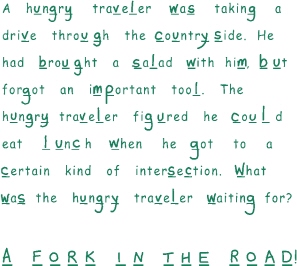The Everything Kids Riddles & Brain Teasers Book (22 page)
Read The Everything Kids Riddles & Brain Teasers Book Online
Authors: Kathi Wagner
Tags: #ebook, #book

humor:
Something that is designed to be comical or amusing. Jokes and comedy are said to be humorous, because they can make us laugh.
hypnosis:
A sleeplike state brought on by a hypnotist, who can direct a hypnotized person to do different things through the power of suggestion.
IQ:
IQ or Intelligence Quotient is a measure of one's ability to think. An IQ test allows people to measure genius as well as normal thinking ability.
jest:
To say or do something in a funny way. In the days of old, jesters were kind of like personal comedians who entertained the king with silly stories and juggling tricks.
joke:
A joke is an act or statement that causes laughter.
memory:
Ability to store information in your brain. Without your memory, you could never remember your brother's birthday or where you put your favorite book. And did you know that memory is one of the things required for laughter?
oracle:
An oracle is a person who foretells the future using enigmas or mysterious speech. Mediums are considered oracles (or messengers) for others.
pun:
A pun is a play on words using two meanings of the same word or two words that sound the same but are spelled differently. For example, the word “sew” in the following joke: “Why do I have to?” the little sewing machine asked his mother. “Because I said SEW!”
puzzle:
A type of test or challenge sometimes used to confuse someone. Often puzzles are used for learning in school settings, such as language or math lessons. Other types of puzzles are actually objects or games.
rebus:
A kind of puzzle in which pictures represent words or parts of words. Sometimes a rebus will be used in a storybook to introduce new words, or in a game to challenge the guesser to solve the picture puzzle.
riddle:
A question or event of puzzling nature that requires you to think of an answer. Some riddles are a type of joke. Other riddles are very serious.
sarcasm:
Humorous comments made with an ironic tone. People may use sarcasm to make a negative point, but sometimes sarcasm is mistaken for a real compliment.
sense:
The ability to see, smell, hear, touch, and taste all of the things that you come in contact with are made possible by your 5 senses. Your brain relies on the senses to perceive the outside world.
soothsayer:
Someone who claims to be able to “see” or predict the future. This ability to see or foresee something is considered a sixth sense. It's different from the other 5 senses our brain normally commands. Many people question the existence of a sixth sense.
sphinx:
According to Greek mythology, the Sphinx was the greatest riddler of them all. This part lionâpart woman kept many people puzzled with her difficult riddles.
teasing:
Teasing is bothering, annoying, or taunting others by making fun of them. Some teasing is just for funânothing to get offended aboutâbut sometimes teasing becomes mean and should be stopped.
thinking:
The process by which the brain creates ideas and makes decisions. When you are thinking of an answer to a math problem, your brain is processing the information that you have stored in your memory to find the solution.
tongue twister:
A word or phrase that is hard to repeat quickly due to the repetition of multiple consonants within the words.
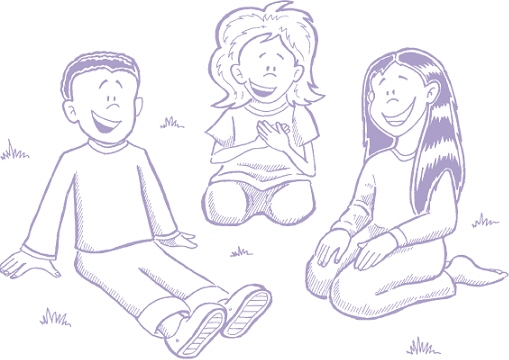
Puzzle Answers

â¢
Bad Band
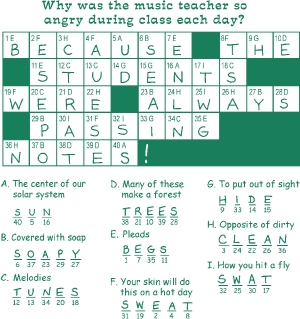
â¢
A Sloppy Subject
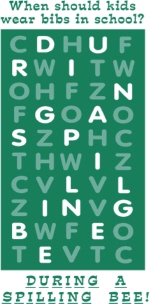
â¢
Math Class
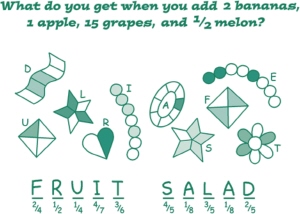
â¢
Loop the Zoo
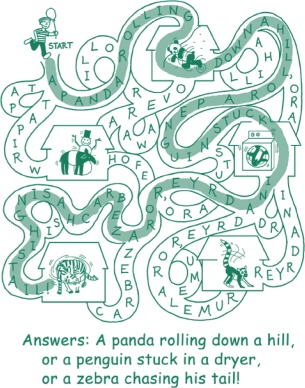
â¢
Say What?
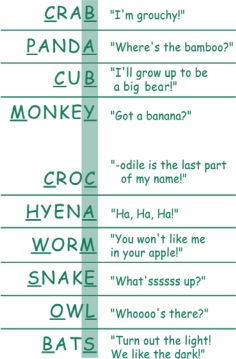
â¢
Feel Better
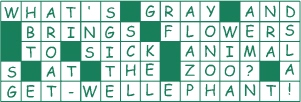
â¢
Funny Flight
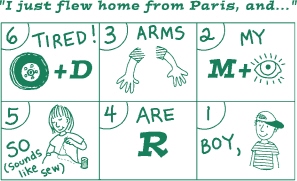
â¢
Where in the World?
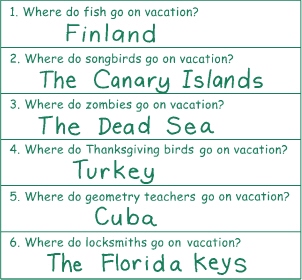
â¢
The Hungry Traveler
